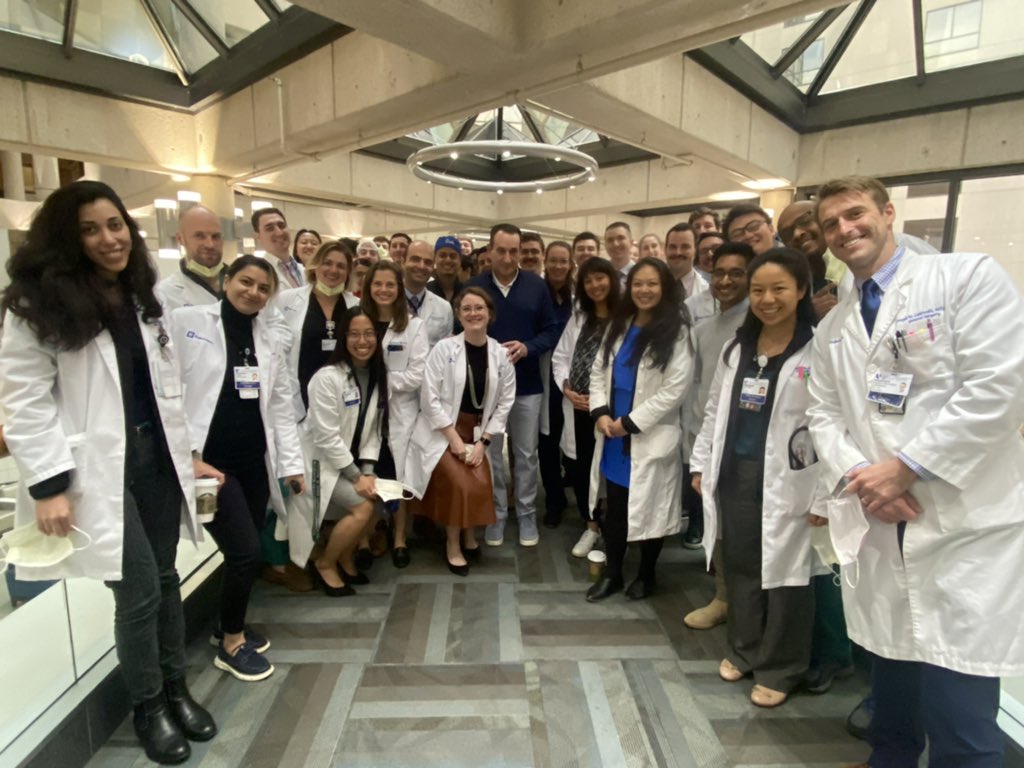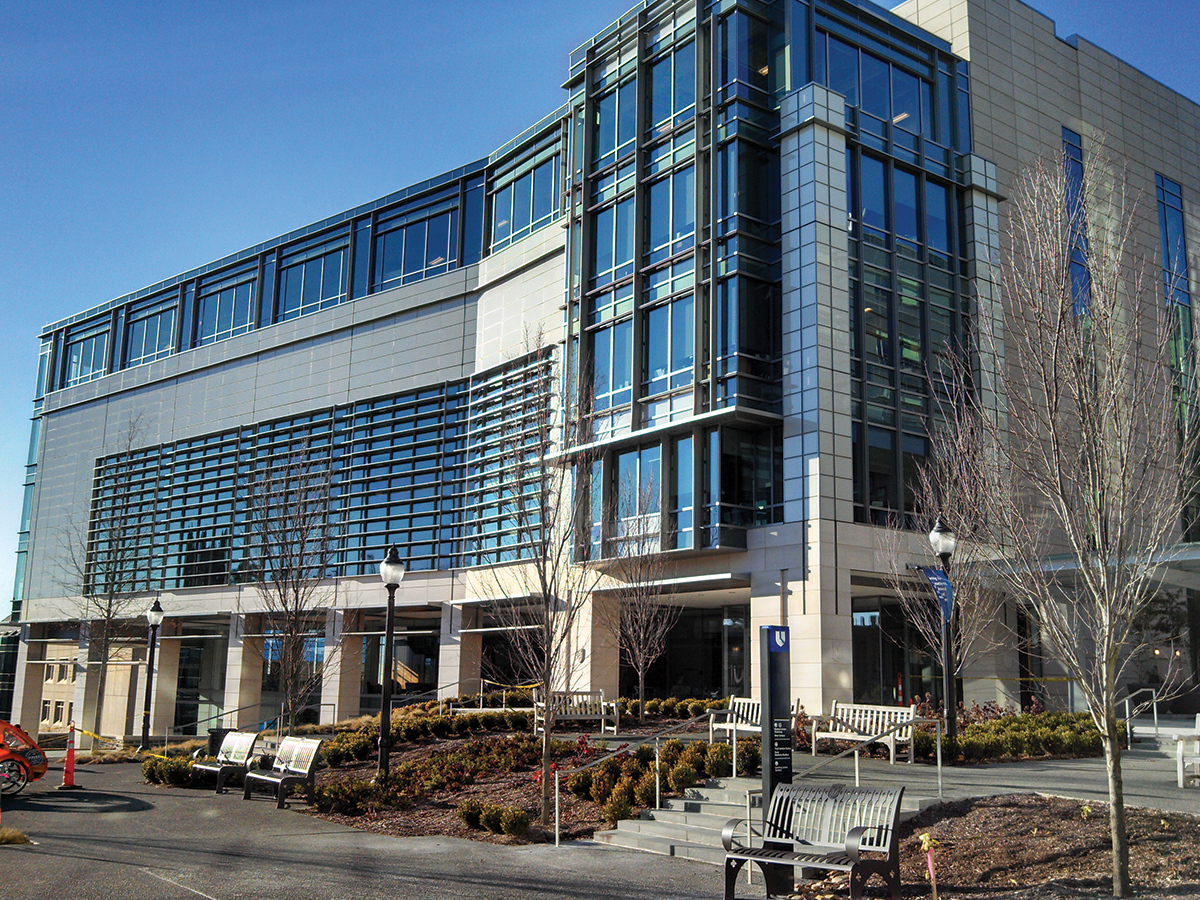Education
The divisions within the Department of Surgery offer robust and ground-breaking educational programs that provide trainees more than just conventional medical training. Residents and fellows that call Duke Surgery “home” are pursuing research, continuing their education, and expanding upon their understanding of what it means to be a surgeon.
Over 300 full- and part-time faculty are committed to providing a world-class, hands-on educational experience with skills and knowledge that can be applied in or out of the OR, classroom, clinic, or laboratory.

Dr. Kevin Southerland is one of many graduates of Duke Surgery training programs who is now applying his education and expertise to the department as a member of the faculty.
What led Dr. Southerland to pursue a career at Duke post-training, and how does he aim to impact the next generation of surgeon–scientists after him?
Central Carolina Surgery Collaboration
In October 2021, Duke Surgery initiated a partnership with Central Carolina Surgery (CCS) in Greensboro, NC with a goal of providing General Surgery residents valuable additional experience performing general surgery cases, and expanding Duke’s care to a great number of patients.
From then to June 2022, Duke Surgery residents contributed to CCS’s total case volume of over 4,300 surgical cases. Jim Hodge, CEO of CCS, shares that the case volume is indicative of the value of the residents’ rotations, and the overall surgical experience factor for the new Duke Division of Community General Surgery.
Learn more about the collaboration and residents’ experiences in the related article, ‘One Year In: A Look at Duke Surgery’s Resident Training Partnership with CCS.’
(Oct '21–June '22)
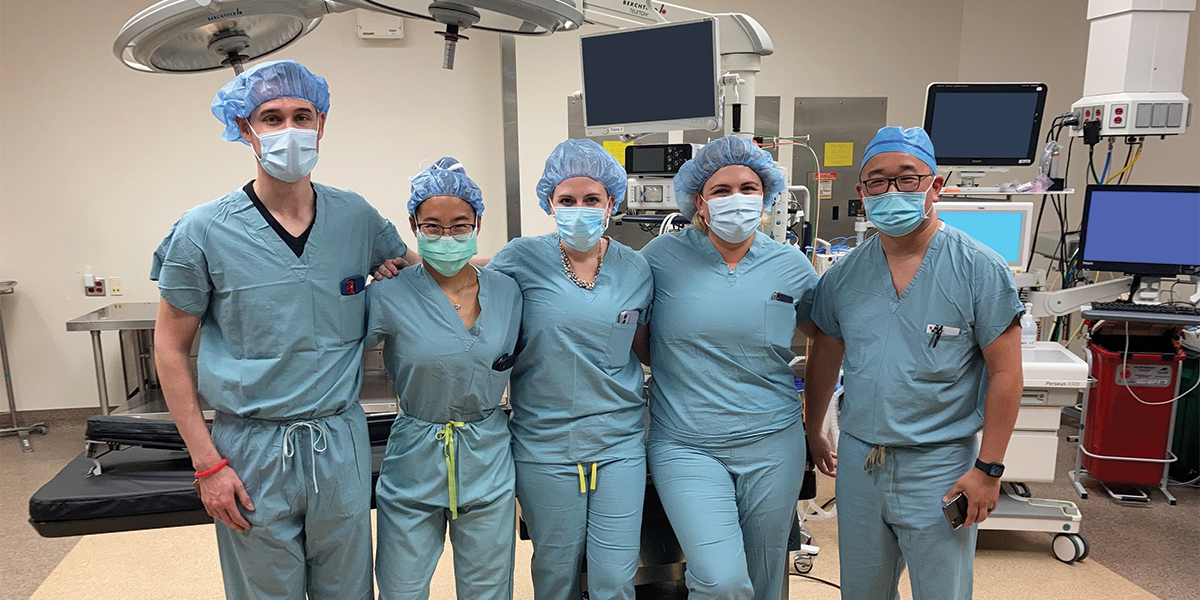
CCS Surgical Cases
(Oct ’21–June ’22)

Lillian Kang, MD
General Surgery Research Resident
IDEA Scholar Established
Lillian Kang, MD, was named the inaugural Inclusion, Diversity, Equity, and Access (IDEA) Scholar in September 2022. In this funded fellowship, Dr. Kang will work to identify and intervene in areas of structural inequity within the Duke community.
Dr. Kang is currently a PGY-4 in the General Surgery Residency Program.
Research Programs
In the 2021-2022 academic year, eight Duke Surgery trainees were supported by T32, R38, or F32 research grants awarded by the National Institutes of Health (NIH). These grants support postdoctoral-level health professionals to pursue careers as physician–scientists and clinician–investigators, filling significant health needs.
Learn more about how trainees are being supported in research in the related article, ‘Duke Surgery and the R38: Investing in Surgeon-Scientist Trainees.’
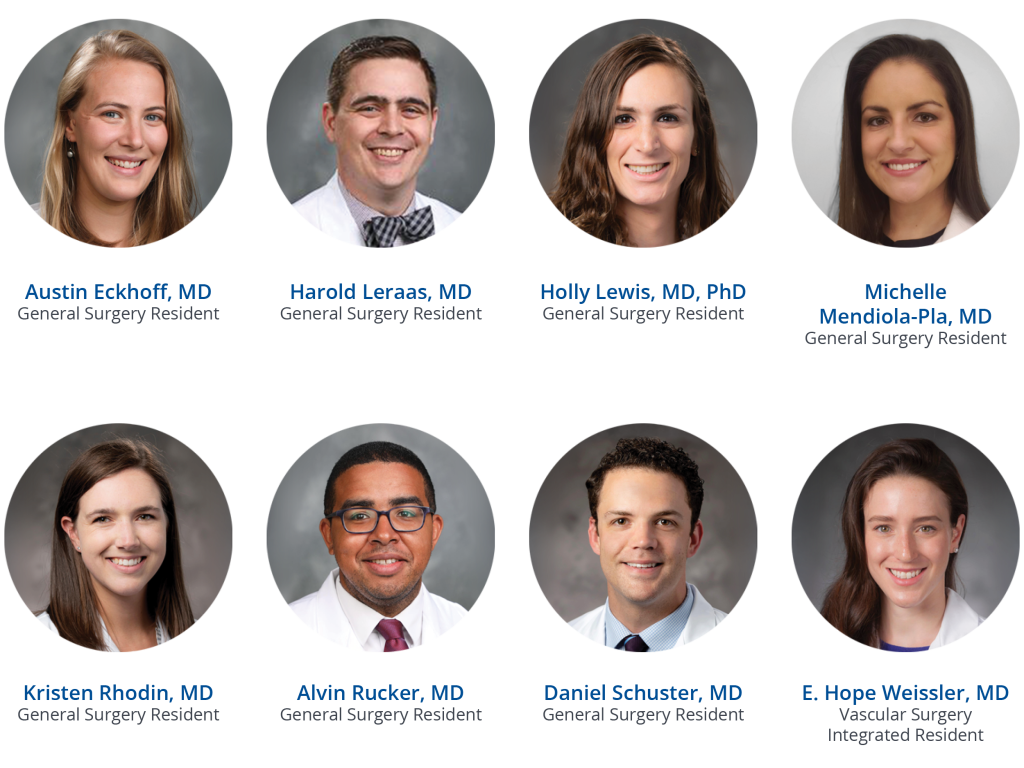
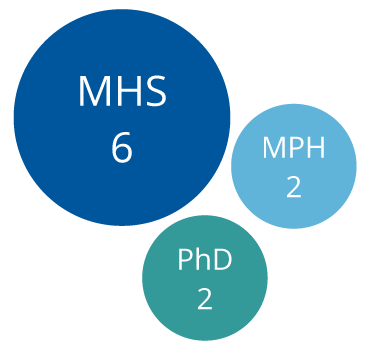
Duke Surgery recognizes the importance of continuing education outside of clinical training. In the 2021-2022 academic year, 10 Duke Surgery trainees were pursuing additional advanced degrees. Six were pursuing a Master of Health Science; two Masters of Public Health; and two PhDs in Immunology.
Give to Duke Surgery Resident and Fellow Education
The Department of Surgery has over 25 training programs that train surgeons who are dedicated to providing outstanding clinical care and contributing to advances in surgical care.
A gift to the Surgery Resident and Fellow Education Fund will support the most immediate needs of the Department of Surgery, including a variety of educational and research experiences for our trainees.


